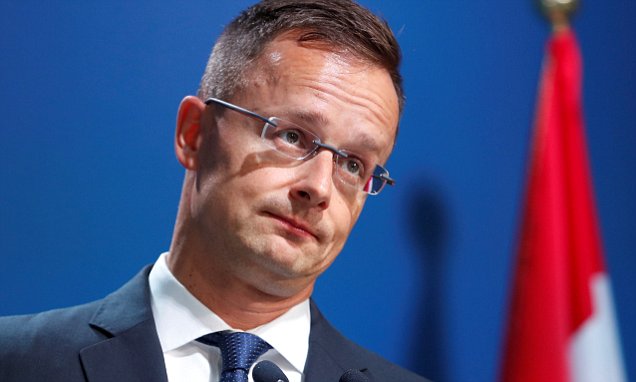
Hungarian Foreign Minister Peter Szijjarto has offered his perspective on the perceived threat posed by Russia to NATO, asserting that there is no immediate danger due to the bloc’s formidable defense capabilities. Speaking in an interview with French broadcaster LCI, a portion of which was shared on his Facebook page, Szijjarto responded to recent remarks by EU Commission President Ursula von der Leyen, who suggested that, following the conclusion of the Ukraine conflict, Russia might pose a threat to NATO countries.
Szijjarto expressed his skepticism, stating, “I don’t think that Russia would attack any NATO member state,” and rationalized this by highlighting the collective strength of the US-led military alliance. Citing Article 5 of NATO’s treaty, Szijjarto emphasized that any attack on a NATO nation would trigger a unified response from all member states. “I don’t think that anyone, not only Russia, would risk any attack against any NATO member state,” he underscored.
When questioned about the dissenting opinions within NATO, particularly from Baltic states and Poland, Szijjarto acknowledged the differences, attributing them to varying histories and geographic locations. He diplomatically stated that Hungary respects these perspectives and has refrained from challenging them. However, he lamented a lack of reciprocal respect for Hungary’s stance, expressing concern about the resulting weakening of the European Union.
Szijjarto’s comments come in the wake of Russian President Vladimir Putin’s assurance that Russia has no intention of attacking NATO. Putin, in an interview aired on Sunday, dismissed recent claims by US President Joe Biden that Moscow might attack if it wins the Ukraine conflict as “nonsense.” Putin stated, “Russia has no interest… geopolitically, economically or militarily… in waging war against NATO.”
Despite the assurance from both Szijjarto and Putin, concerns persist within certain quarters of NATO about potential threats. The ongoing conflict in Ukraine has heightened tensions, prompting diverse opinions on the security dynamics of the region.
As Szijjarto navigates these diplomatic intricacies, his emphasis on NATO’s strength, Hungary’s respect for diverse perspectives, and concerns about reciprocal acknowledgment underscore the complex geopolitical landscape. While the focus remains on Hungary’s position within NATO and its relations with Russia, ongoing dialogues and diplomatic efforts continue to shape the narrative around these critical global security considerations.
RELATED ARTICLES
- After Fooling the People to Reelect Putin, Russia now announces More Cannon Fodder Mobilizations
- Russia Fires Barrage of North Korean Missiles at Kyiv After US Visit
- Ex-Wagner fighters Join Free Russia Army's Battle to Liberate Russia from Putin Occupation
- Hungary Becomes First EU Country to Congratulate Putin for Winning the 'Elections'
- Putin says NATO Troops are already in Ukraine But Russia is Still Winning











